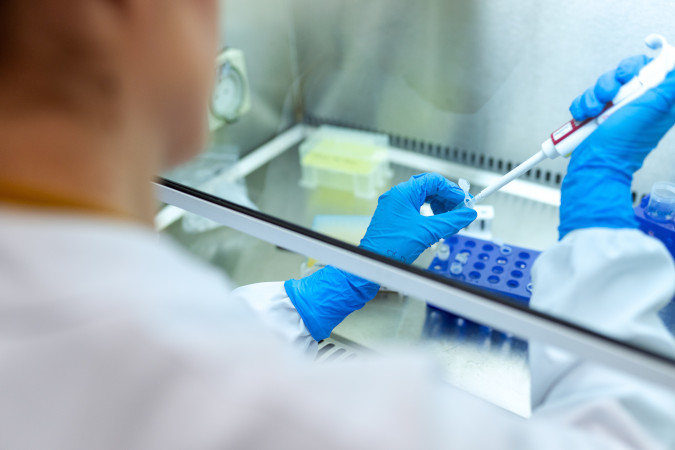
Areas of clinical laboratory where they work include biochemistry, hematology, immunology, histology and microbiology departments. They operate various delicate, and hi-tech equipment such as light microscopes, advanced analyzing devices, and computers to test the samples.
MLAs may work in various settings such as hospital/clinic laboratories, blood banks, research laboratories of hospitals, universities and colleges.
Average Hourly
$23.07
Range Hourly
$11.92 – $29.56
Average Yearly
$44,989
Range Yearly
$23,241 – $57,648
Medical laboratory technicians and pathologists' assistants (3212)
Laboratory assistant - medical
Medical laboratory aide
Medical laboratory assistant
Medical laboratory helper
Medical laboratory technical assistant
Phlebotomist
Phlebotomy aide
Renal technician
Technical assistant - medical laboratory
Technical assistant - pathology
A 5-6 month certificate program on medical laboratory assistant available in many colleges across Canada. For examples:
Average hourly |
Range hourly |
Average yearly |
Range yearly |
$23.07 |
$11.92 - $29.56 |
$44,989 |
$23,241 - $57,648 |
High
Employment outlook is good to fair in most provinces. More information is available here.
It depends on acquiring further education and training such as diploma program of Medical Laboratory Technologist.
None. Requires a certificate program certificate from an accredited institution
Programs available at across countries. List of accredited programs can be found here.
Good communication skills; time management; medical terminology knowledge; Interest to spend long time in lab settings; ability to work in stressful situations at times; very diligent and careful; reasonable physical stamina; must be detail oriented and able to follow strict procedures; must be able to work both independently and as part of a team; should have good interpersonal skills; normal colour vision
Medical laboratory assistants may need to work long time sitting or standing. They are required to be diligent and often need prolonged visual focus and repetitive motions.
There is risk of being exposed to strong chemicals, biological hazards, infectious diseases and the potential for needle prick injuries. They need to be extremely cautious and careful to follow laboratory safety procedures to be safe from contracting infection, and ensure the safety of patients and co-workers, laboratory technologists practise safe work procedures.
Medical laboratory assistants’ work hours may vary. They may work full time, part time, or casual hours. In diagnostic laboratories they may have rotating shifts including day, evening and night shifts, weekends and holidays. In research laboratories, however, they standard weekday hours may apply usually.
This is not regulated. However, certification through the Canadian Society for Medical Laboratory Science followed by an exam completion can be an asset for employment.
Get admitted into a certificate program for medical laboratory assistant in an accredited college with practicum in Canada and successful completion of the program.
Write and pass the national certification exam (preferred, not necessary) to be certified by the Canadian Society for Medical Laboratory Science (CSMLS).